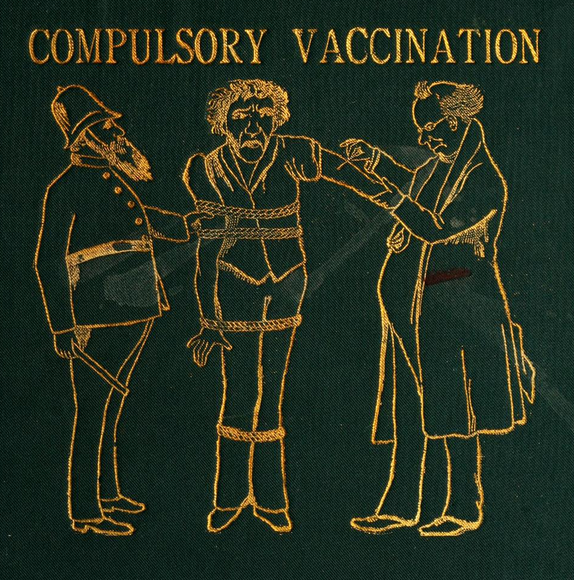 I have just made my paper entitled "Prometheus Unbound?: Alfred Russel Wallace, Vaccination Acts and the ‘Progress Problem’ in the late-Nineteenth Century" available on Academia.edu. Here is the abstract:
I have just made my paper entitled "Prometheus Unbound?: Alfred Russel Wallace, Vaccination Acts and the ‘Progress Problem’ in the late-Nineteenth Century" available on Academia.edu. Here is the abstract:The numerous Vaccination Acts passed between 1840 and 1907 were innovations in every sense of the word. They heralded a new approach to the role of the state in the population’s health. They consolidated the new relationship between the state and medical science. They also ultimately brought forth a new term: ‘conscientious objector.’ For us—sitting in the comfort of the twenty-first century—this innovation was unquestionably a boon to humanity. Smallpox is all but eradicated. In this regard, state-directed schemes such as the Vaccination Acts were key vectors of this victory over one of the great scourges of humanity.
Nonetheless, a significant minority of the population vehemently opposed the Vaccination Acts. Their ranks did contain a number of cranks and charlatans. However, they also included well-respected scientific figures whose opposition was genuine and at least partly justified. One such figure was the co-discoverer of natural selection with Darwin: Alfred Russel Wallace.
This paper considers why Wallace was opposed to such an apparently beneficent procedure. He was no anti-science anti-innovator. Instead he provided a compelling critique of a scientific innovation we take for granted today. He questioned the virtue of state medicine. He questioned the growing power and unaccountability of the medical profession. He questioned their statistical evidence (in the process offering an innovative fully-statistical assessment of the value of a medical procedure).
What emerges is a genuine concern for what may be termed ‘medical ethics.’ This developed from Wallace’s broader belief—unusual at the time—that scientific innovation did not inherently represent a cut-and-dry case of ‘progress.’ Scientific innovations had to be weighed against deeper political, social and ethical considerations. This stance—controversial at the time—appears comparatively commonplace today. Wallace’s prescience reflects a mature and self-conscious appreciation of potential problems of scientific progress in regards to man.
I delivered this paper on 11 June 2014 at the Institute for Historical Research at the University of London. I am hoping to work it up into a paper in due course and so any comments, criticisms or suggestions would be hugely welcome (use the contact me page or the comments section).
No comments:
Post a Comment